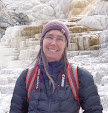Also
better titled, "Keeping, cajoling, bribing or in any other ways ensnarling
the skills of reliable editors or proof readers..."
To
begin with, I don't have all the answers to this dilemma. Sometimes a good
editor for a writing project is a gift, just a surprise delight in an on-going
writing process.
Most
of our family members and friends either feel unqualified to critique our work,
which may be true; live in fear of offending by their responses or thoughts,
which may also be true or don't have the time and energy to devote to a quality
edit, alas, this also may be true.
Sometimes
it is a challenge to get anyone to read our budding projects, much less provide
constructive criticism.
I
have had the luck or privilege of a husband who enjoys proofing and editing
writing. However, I have noticed that after long, repeated edits, he loses his
fine eye for detail. He also will not give broad suggestions or observations
about my work, assumedly because he realizes he has to live with me!
My
daughter, a writer herself and recently completing her Master's in English, and
her husband, have been great editors and encouragers in my writing process. So
too, I have offered my editing and proofing as my daughter explores and creates
her own literary works. I have learned not to abuse their generosity with too
frequent of requests for material editing.
My
current novel, with already five to ten major edits behind it and maybe one or
two more to go, was a product of varieties of inputs. Several years ago, my
daughter was my first major reader. She gave me feedback primarily on character
development and some plot and process issues.
After
a few major rewrites, I was fortunate to have a cousin of mine, a talented
writer, high school librarian of many years and soon to be completed MFA,
provide a wonderful, detailed edit of my novel. She was able to catch my repetitious
poor writing habits and suggest some creative literary tools to improve on my
presentation. I am very indebted to her willingness to share substantial time
and effort in improving my writing ability.
In
the process of editing, Niki taught me a simple but helpful way to read another
author's work and give feedback. She suggested that when we review a work, we
observe what we liked, what we noticed and what we wondered about as we read.
This type of reflection and subsequent sharing of our insights or questions
gives power and process to the author. One then can share positive strengths,
incongruities and questions about plot or characters with the writer, while not
taking away their creative energy or ability to choose plot and styles.
One
book my cousin suggested was Ursula K. Le Guin's, Steering the Craft: Exercises
and Discussions on Story Writing for the Lone Navigator or Mutinous Crew.
This is a delightful reflection on storytelling and methods to improve one's
writing. Although I typically don't enjoy writing exercises, some of these were
fun and creative.
I
also have received helpful suggestions during sessions with literary agents at
writers' conferences. Their expert, quick observations about story and plot
lines, character development or even the sometimes simple questions about the
choice of title, have been very helpful in the process of writing my novel.
Some
people are privileged to be part of a writer's group that provides support and
feedback on writing projects. These types of groups can be very helpful.
Sometimes they may be "closed" groups, only allowing members that
match their "level" of writing, i.e. published vs. unpublished. A
writer's group is useful when it matches the needs and personality of an
individual writer.
The
rare opportunity when a literary professional reads our work and gives
constructive feedback can be a great asset. It may be couched in the
"rejection" notice, but yet be valuable information to our continued
writing, whether or not we entirely agree with the observations. Or even rarer,
one can be given the privilege of working with literary professionals as their
work moves towards publication.
Even
though there are for-hire editors, most new writers cannot afford the
investment and continue to work through family, acquaintances and writer's
groups. There may come a time when the investment in a good
"unrelated" editor may be timely and appropriate. It would then be
imperative to investigate information about these editors, their skills,
history and fees.
Wherever
your writing is taking you, if even mainly for your own self-expression...enjoy
the process, the freedom, the deep creativity... and may a few good readers,
editors and proofers grace your journey, to the measure that you need...





